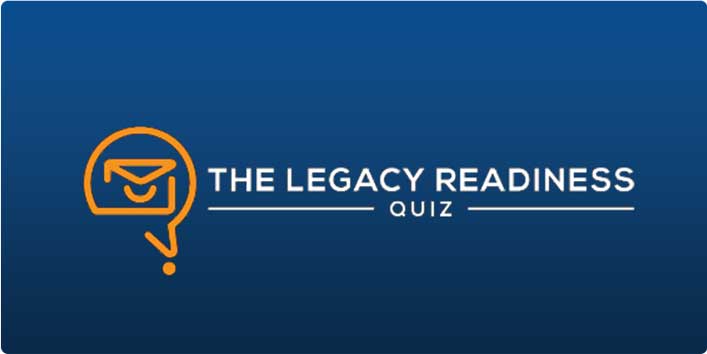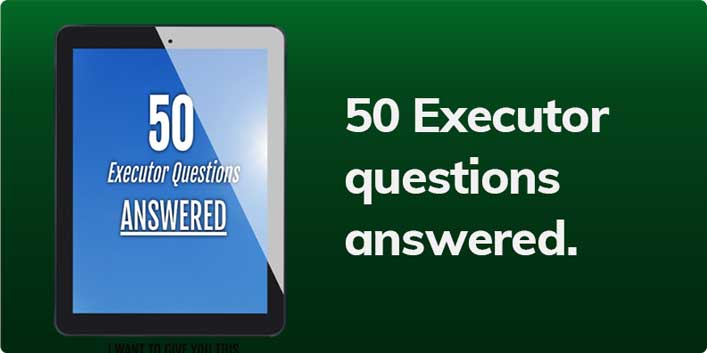- Home
- Estate Planning goals and objectives
- How to Appoint an Executor
How to Appoint an Executor:
Taking Control of Your Legacy
The question of how to appoint an executor is not hard, I believe it is more important to figure out who do you choose?
What do they need to do?
And what kind of conversations should you have with them?
Understand the Role of an Executor
Your executor plays a vital role in managing your estate after your passing. They are responsible for tasks such as identifying and managing assets, paying debts and taxes, and distributing inheritances.
When appointing an executor, look for someone who possesses trustworthiness, organizational skills, and financial competence.
Determine if Your Executor's Can do the Job
This is a big favor you are asking. On average it will take your executor 100 hours and between 18 to 24 months on average to settle your estate.
Choosing the right executor is crucial. Consider their relationship to you, their availability, and their understanding of your wishes.
It's essential to have open conversations with potential candidates, discussing the responsibilities and ensuring their willingness to take on the role.
Communicate Your Decision
Once you have selected an executor, it's important to inform them of their appointment.
Have a conversation to discuss their responsibilities and address any concerns or questions they may have. Clear communication will help establish a mutual understanding of expectations.
Make it Easier on Your Executor and Prepare the Necessary Documentation
Gather all the relevant documents the executor is going need. These may include your will, how to get death certificates, where your financial records, and legal documents pertaining to your assets can be found.
Keep these documents in a safe and easily accessible location, and inform your executor where they can found.
Along with a list of your digital assets, which means all your logins and passwords.
Consider Backup Executors
It also a good idea to designate backup executors as well.
Life circumstances can change, and the primary executor may become unavailable, pass away or be unable to fulfill their duties.
Designating backup executors ensures a smooth transition if a contingency arises.
Review and Update Regularly
Reviewing and updating your executor regularly is crucial.
Life events such as marriage, divorce, the birth of children, or the passing of a loved one may mean changes to your appointed executor.
Regularly revisit your estate plan to ensure it reflects your current wishes and circumstances.

Emily & James and their blended family
Emily and James were a married couple with grown children from previous marriages. They decided to appoint their two adult children, Sarah and Michael, as co-executors of their estate.
Emily and James held a family meeting where they explained their decision and discussed the roles and responsibilities of the co-executors.
They emphasized the importance of working together, communication, and consensus-building when making decisions related to the estate.
Emily and James also provided their children with a comprehensive overview of their financial accounts, legal documents, and other important information.
By appointing co-executors and facilitating open communication, Emily and James ensured that their estate administration was a collaborative effort, fostering family unity and shared responsibility.
How to Appoint an Executor for Your Estate
and the Conversations You Need to Have
What kind of conversations should I have with my executor?
When appointing an executor, it is important to have open and clear conversations to ensure a mutual understanding of their responsibilities and your expectations.
Here are some conversations you should have with your executor:
Discuss the Role and Responsibilities: Explain to your chosen executor the specific role they will play in managing your estate.
Discuss their responsibilities, such as identifying and safeguarding assets, paying debts and taxes, distributing inheritances, and potentially handling legal proceedings.
Provide them with an overview of the tasks they will need to undertake.
Share Your Wishes and Intentions: Communicate your wishes and intentions regarding the distribution of your assets.
Explain any specific bequests, charitable donations, or other arrangements you would like to make.
Discuss your preferences for managing specific assets or sentimental items to ensure your executor understands your desires.
Address Potential Challenges: Talk about any potential challenges that may arise during the execution of your estate plan.
This may include complex family dynamics, disputes over assets, or other sensitive issues.
By discussing these challenges upfront, you can provide guidance to your executor on how to handle such situations and mitigate conflicts.
Provide Access to Important Information: Share important information that your executor will need, such as the location of legal documents (will, trusts, etc.),
financial account details, contact information for professionals (attorneys, accountants), and any other relevant records.
Make sure they know where to find these documents along with all logins and passwords to your digital assets and how to access them when the time comes.
Discuss Communication with Beneficiaries: If you feel it is necessary, discuss how your executor should communicate with the beneficiaries of your estate.
This can help manage expectations and ensure a smooth transition during the estate administration process.
Consider discussing confidentiality matters and how your executor should handle sensitive information.
Impress upon them the importance to keep the beneficiaries informed regularly until the estate is settled. They can do that through an email or Zoom call.
Provide Support Resources: Offer resources and support to your executor. This may include providing contact information for professionals
they may need to consult, such as an attorney or accountant.
If you have specific preferences or instructions, ensure that your executor knows where to find guidance and who to reach out to for assistance.
Keep the Conversation Open: Encourage ongoing communication with your executor.
Let them know they can approach you with any questions or concerns they may have, both during your lifetime and after your passing.
Maintaining an open line of communication helps build trust and allows for the smooth execution of your estate plan.
Once you know how to appoint an executor it is crucial to document these conversations and any instructions you provide to your executor.
Consider including a letter of instruction along with your will or estate planning documents to provide additional guidance.
Consulting with an attorney who specializes in estate planning can also be beneficial in facilitating these conversations and ensuring all legal aspects are covered.
- Home
- Estate Planning goals and objectives
- How to Appoint an Executor






